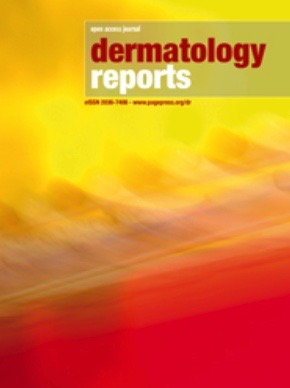The efficacy of apremilast in pemphigus: a systematic review of case reports
All claims expressed in this article are solely those of the authors and do not necessarily represent those of their affiliated organizations, or those of the publisher, the editors and the reviewers. Any product that may be evaluated in this article or claim that may be made by its manufacturer is not guaranteed or endorsed by the publisher.
Authors
Pemphigus is a severe autoimmune blistering disorder that significantly affects patients’ quality of life. While corticosteroids and immunosuppressive agents are commonly used, they have substantial side effects, highlighting the need for safer alternatives. Apremilast, an oral phosphodiesterase 4 (PDE4) inhibitor, has shown efficacy in treating other autoimmune diseases and may offer promise for pemphigus. This systematic review evaluated the clinical outcomes, safety, and potential role of apremilast in pemphigus treatment by synthesizing available case reports and series. A literature search was conducted across multiple databases (PubMed, EMBASE, Cochrane, Web of Science, ScienceDirect, and Google Scholar) for case reports and series involving apremilast in pemphigus. Inclusion criteria were a confirmed pemphigus diagnosis and apremilast treatment. Five studies (four case reports and one case series) involving seven patients were included. Apremilast led to significant clinical improvement in four patients, with reductions in disease activity, lesion severity, and symptom scores (Pemphigus Disease Area Index, Autoimmune Bullous Skin Disorder Intensity Score, Visual Analog Scale, and Numerical Rating Score). Increases in regulatory T cells and decreases in anti-desmoglein antibodies were observed. No serious adverse events were reported, although one study noted treatment failure, possibly due to short follow-up or concurrent infections. Apremilast appears to be a promising treatment for therapy-resistant or corticosteroid-intolerant pemphigus patients. Although the evidence is limited, it supports apremilast’s efficacy and favorable safety profile. Further research with larger sample sizes and randomized controlled trials is necessary to confirm these findings.
How to Cite

This work is licensed under a Creative Commons Attribution-NonCommercial 4.0 International License.








